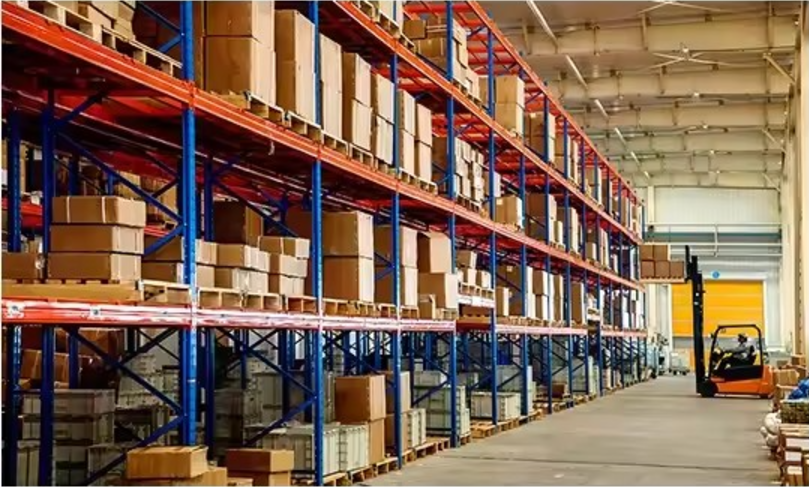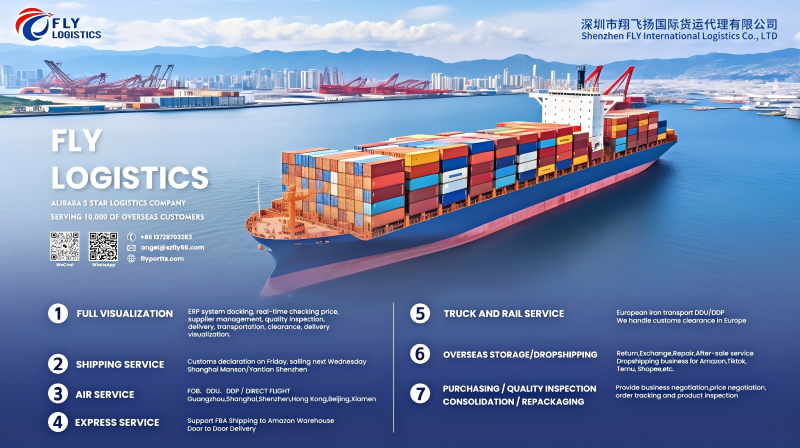In today’s globalized economy, businesses are increasingly turning to overseas warehouse storage services to streamline their logistics operations, reduce delivery times, and meet the growing demands of cross-border e-commerce. According to a report by Statista, the global e-commerce logistics market was valued at approximately $225 billion in 2022, and it is projected to grow at a compound annual growth rate (CAGR) of 8.7%, reaching nearly $400 billion by 2030. This remarkable growth highlights the importance of efficient warehousing solutions, particularly overseas warehouses, in meeting the rising expectations of consumers worldwide.
What Are Overseas Warehouses?
Overseas warehouses are strategically located storage facilities outside of a company’s home country. These warehouses allow businesses to store their goods closer to international markets, enabling them to ship products to consumers faster and more efficiently. This setup is particularly useful for companies engaged in cross-border e-commerce, where shipping times and costs are critical factors for customer satisfaction and competitive advantage.
For example, a company based in China that sells products to the United States might choose to set up an overseas warehouse in the U.S. to hold its inventory. This allows them to ship products from within the country rather than relying on international shipping, which often takes longer and incurs higher shipping fees.
Reduced Shipping Costs
One of the most significant advantages of using overseas warehouse storage services is the reduction in shipping costs. By storing products in warehouses closer to target markets, companies can avoid the high costs associated with international shipping and the unpredictable tariffs that may arise from customs.
Shipping costs can account for a substantial portion of a company’s overall expenses. According to a McKinsey & Company report, transportation costs account for 10-15% of the total cost structure in retail logistics, and the logistics industry continues to experience volatility in fuel prices, shipping rates, and freight capacity. Storing products in overseas warehouses allows businesses to reduce reliance on costly long-distance shipping, which can result in significant savings in the long term.
Moreover, businesses can leverage bulk shipping discounts when sending larger quantities of goods to overseas warehouses. These discounts can further reduce shipping expenses, improving profitability and competitiveness.
Faster Delivery Times
In the age of Amazon Prime and other rapid delivery services, customers expect fast shipping. A survey by Shopify found that 66% of online consumers expect their orders to arrive within three days or less. Overseas warehouse storage services enable businesses to meet these expectations by reducing shipping distances and transit times.
By holding inventory closer to end customers, companies can ensure faster delivery times, improving customer satisfaction. For example, a customer in the U.S. who orders a product from a company based in China will benefit from the products being shipped from an overseas warehouse located in the U.S. rather than waiting for a shipment to arrive from overseas, which could take weeks.

Improved Inventory Management
Overseas warehouse storage services also provide businesses with better control over their inventory management. Storing products in multiple locations allows businesses to track their stock levels more efficiently and restock as needed based on real-time demand.
The global supply chain has been disrupted in recent years by events such as the COVID-19 pandemic and geopolitical tensions. This has made it essential for businesses to have agile, flexible supply chains that can quickly adapt to changing market conditions. Overseas warehouses offer a solution by allowing businesses to maintain stock in multiple regions, ensuring they can respond to fluctuations in demand with greater speed and accuracy.
Advanced warehouse management systems (WMS) used by overseas warehouse storage services operators also enable businesses to track their inventory in real-time. These systems often come equipped with features such as barcode scanning, RFID technology, and automated order fulfillment, which improve accuracy and reduce the risk of stockouts or overstocking.
Reduced Customs and Import Duties
Another key benefit of overseas warehouse storage services is the ability to avoid or minimize customs duties and taxes that can arise from international shipping. When goods are shipped directly from one country to another, they may be subject to customs clearance procedures, including tariffs and taxes, which can delay shipments and increase costs.
By storing inventory in overseas warehouses, companies can often avoid certain customs fees or take advantage of trade agreements between countries. For example, the European Union’s Free Trade Agreements (FTAs) with countries like South Korea and Japan can help businesses reduce import duties when they store products within the EU.
Furthermore, using an overseas warehouse allows businesses to have better visibility into customs procedures, ensuring that shipments are properly documented and compliant with local regulations. This reduces the risk of delays and penalties associated with incorrect or incomplete paperwork.
Scalability and Flexibility
As e-commerce continues to grow, businesses need logistics solutions that are scalable and flexible. Overseas warehouse storage services provide businesses with the ability to scale their operations without having to invest heavily in their warehousing infrastructure.
Many overseas warehouse storage services operate on a pay-as-you-go model, meaning businesses only pay for their storage and services. This gives companies greater flexibility, allowing them to adapt to changing demand and avoid the costs associated with underutilized warehouse space. Additionally, overseas warehouses can handle varying product volumes, so businesses can scale up or down as needed, which is particularly useful for seasonal fluctuations or promotional periods.
About us:
Shenzhen Fly International Logistics is pleased to introduce itself to you. We are an international logistics company committed to creating value for customers and becoming an innovative leader in the cross-border logistics industry.
Fly Logistics was founded in 2014. From traditional air transport to cross-border e-commerce logistics, we have signed direct contracts with major airlines, four major express companies, and shipping companies for ten years. In 2015, it was the first logistics company in the logistics market to transform into cross-border e-commerce DDU/DDP services, with more than 200,000 square feet of overseas warehouses in the United States, the United Kingdom, and Canada.
We have rich logistics expertise, a perfect management mechanism, a young and dynamic team, and customer-first service awareness. We are committed to using our expertise and services to ensure the safety, reliability, and timeliness of customers in the process of international logistics transportation. The self-developed ERP logistics system realizes the visualization of the entire process from picking up to signing and can be connected to various management and e-commerce ERP systems. Make international logistics simple and standardized.





